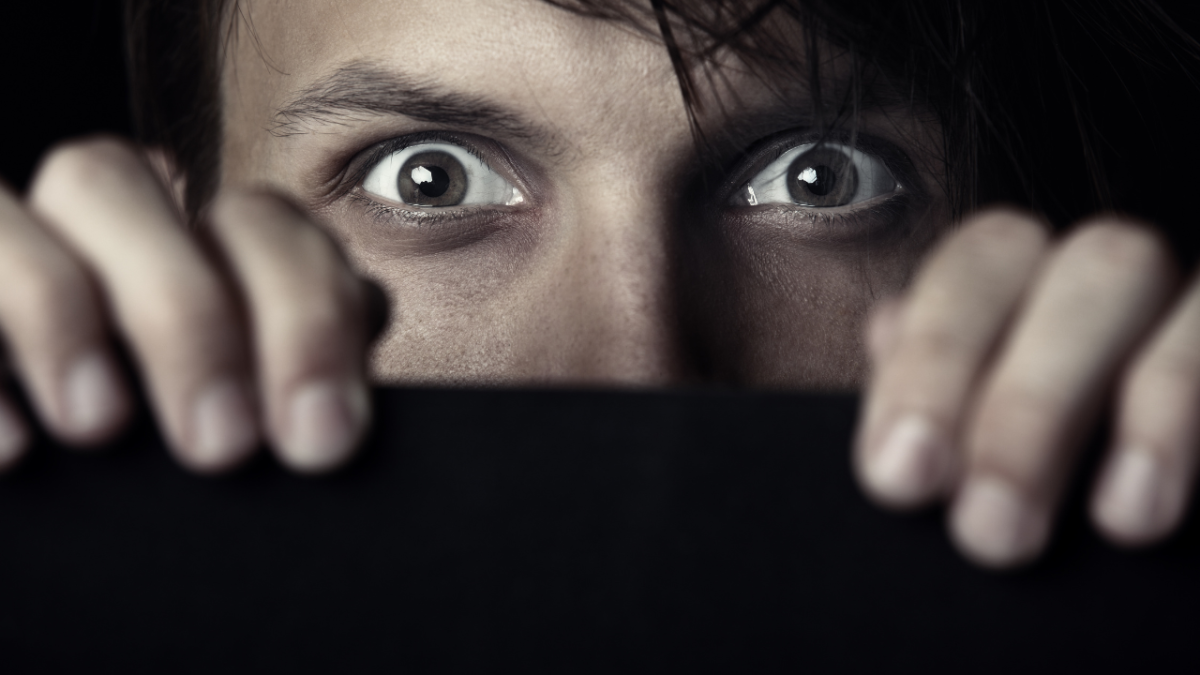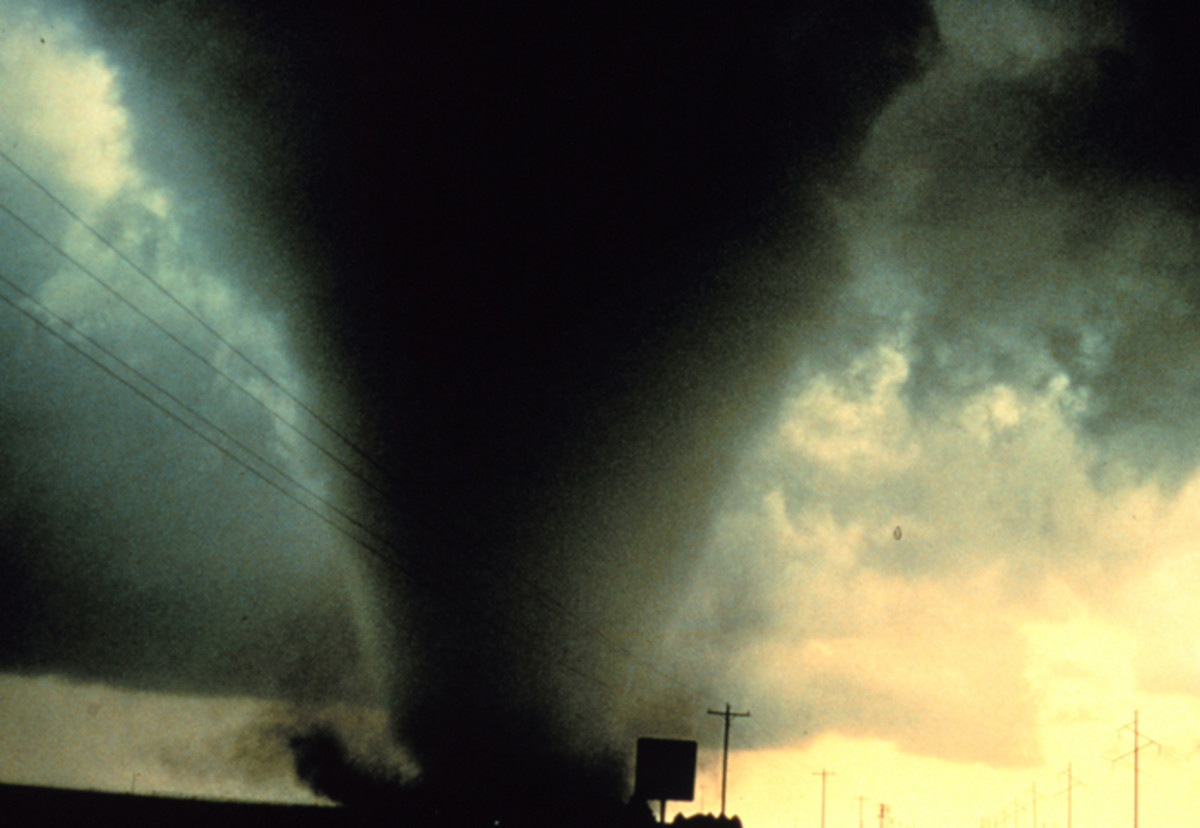Flying Anxiety
Flying Anxiety – Tips in overcoming
Every year, the number of people that have having a hard time overcoming flying anxiety is increasing. If you think that you are at risk of developing flying anxiety or you know somebody who is already suffering from the condition, the best way to address the problem is to determine if there is really a “problem”.
In this case, the problem is the fear of the person in flying. Experts say that the earlier the phobia is diagnosed is the best treatment for this condition. This is because the problem could be addressed in its “infancy” stage so more options would be available for the patient.
The first thing that one can do if he or she suspects that he or she might have developed this fear in flying is to check the symptoms of people who are diagnosed with it. Some of the common symptoms of the phobia include over anxiety or nervousness during the flight.
Other manifestations of the condition might also include nausea, dizziness, vomiting, muscular tensions, motion sickness, excessive sweating, heavy breathing, palpitations or increased heart rate and uncontrolled shaking or trembling of the person’s body.
If these symptoms happen to a person during the flight, then there is a great need for him or her to seek professional help as soon as possible. The diagnosis of aviophobia is usually made by the psychologist who will offer flying anxiety advices. He or she will also assess the patient by asking about him or her about the flying anxiety, how it started, and the extent or the severity of the fear which may affects his or her life.
Going to a psychiatrist is one of the basic treatments in overcoming flying anxiety because he or she will give the person another perspective on the condition and will also help him or her handle the condition especially if it has reached phobic proportions. The following are just some of the tips that you can follow in order to overcome flying anxiety:
1. Be knowledgeable. This is the best thing that you can do in order to overcome with flying anxiety. If you are educated about flying, you will know that accidents donít happen all the time. And if these will, you will know what to do since you have already taken time off to know more about this occurrence.
Experts say that the greater understanding there is when it comes to flying and about all the things that usually take place during flights, he or she will get hold of the fear that grips his or her emotions.
2. Know what actually scares you. This is the basic thing that people who have phobia in flying should do because if they will know what it is that they fear in flying, they can address these issues on themselves with a help of a professional such as a psychologist.
3. Stop thinking too much. Experts say that although phobia in flying is valid, it all stem from the person’s imagination. So, if you are in a flight, it is best not to think too much about what might happen. If you do this, you will experience peaceful flight without having to worry about anything.
Most of the people who have deep seated flying anxiety have reached this stage because they tend to think of too many things while aboard. The tendency is for them to have panic attacks and prolonged dizziness. In overcoming flying anxiety, one must try to relax during the flight.
Overcoming flying anxiety
Despite all the safety measures and precautions conducted by the airline officers and owners, there are still a growing number of people who are having a hard time in overcoming flying anxiety. Experts say that this fear may stem from the person’s bad experience during one of his or her flights. Studies show that many that have developed flying anxiety are the ones who are used to travel via plane before. This is because of the frequency, it is inevitable for them to experience an bad occurrence at some point. These bad experiences may include prolonged or heavy turbulence that is caused by natural phenomenon such as bad weather or an aborted flight wherein the airplane needs to take an emergency landing that is usually caused by mechanical failures.
Another reason for this fear is the person is exposed too much on media coverage on various tragic accidents in the air which instill a fear for his or her life. Studies show that people who have witnessed an extensive coverage of an aerial accident are prone to having aviophobia sooner or later.
Starting to overcome the fear
If you are one of those who have developed this fear and you would want to overcome it, here are simple step-by-step procedures that you can follow:
FIRST STEP: Conduct a thorough research. Indeed, knowledge is power. If you are aware about the basics of flight and air travel, your mind can tell you how to control your fear. Aviophobia stem from over anxiety about tragic air accidents. It is also a result of a misunderstanding and lack of enough knowledge on flights and the technicalities of the aircraft itself. If you are able to educate yourself on these things, it will be easier for you to understand and realize that some of your fears on flying could be far-fetched.
SECOND STEP: Clear your mind before and during the flight. flying anxiety is a phobia caused by untoward incidents that might happen in the air. Experts say that this fear is all in the mind of the person. So, if the person tries to clear his or her mind from things that might happen, he or she might be able to overcome the fear in no time. To clear your mind off negative thoughts, you can try practicing relaxation techniques before and during the flight such as breathing that is controlled, rejection of negative thinking by making a conscious effort, and indulging into distractions such as reading, listening to music or watching airline movies.
THIRD STEP: Learn about “desensitization.” Experts say that this process is usually conducted during a Cognitive Behavioral Therapy (CBT) wherein the person who has developed fear in flying is slowly exposed to the conditions of flying until he or she is able to face the fears and learn to overcome them.
FOURTH STEP: Seek professional help. Some people have deep-rooted aviophobia that is why they are having a hard time overcoming flying anxiety. If you think that your phobia on flying has reached bigger proportions and it already affects your life in general, it is best to consult a professional to check on you. This professional can either be a psychologist or a psychiatrist who can check your emotional and even your mental health if needed. The doctor will recommend some treatment options such as drug therapy. If you have a mild condition, he or she will teach you relaxation techniques that you can administer at home in managing and controlling your anxiety attacks.
Best strategies in overcoming flying anxiety
For a person to learn overcoming flying anxiety, he or she must understand what causes that fear being up in the air. This is very important for him or her to know what are the best possible ways to adjust to these fears. Experts say that flying anxiety is a “learned fear”. It is something that causes peopleóeven those who were once confident travelersóto stop from taking flights via plane to go to places. This phobia is caused by so many factors which hinders people to being up in the air again.
Studies show that the major reason why people developed flying anxiety is their own personal experiences when flying. These bad experiences are the ones that register in their mind whenever they go aboard, thus, causing them to be uncomfortable when they are aboard. The bad experiences when flying may include prolonged turbulence caused by a bad weather. It can also be some mechanical problems that have caused the plane to have an emergency landing. Or it can be a terrifying experience such as a near-death encounter while flying.
Another reason why many people develop flying anxiety is what the experts call “stress contamination.” Here, the person who already has high levels of stress develops an anxiety episode, which makes it harder for that person to overcome that fear. At first, some people do not immediately this fear but it develops when they experience more bad encounters during their next flights.
A news coverage of an air disaster is also another reason why people who are already afraid of flying are having a hard time overcoming that fear. Experts say that it is only common for people to develop flying anxiety since it may lead to their death once an accident happens. To some people, they take this possibility into greater a lengthóthat is why they tend to develop flying anxiety even if the flight is safe. And this fear only doubles when they see how tragic it is to die during a plane crash or an accident.
The best way
Although people have valid reasons to be afraid of flying, not riding planes should not be the option. This is because the person mainly allows his or her imagination to get the best or better of him or her. So, if you want to overcome that fear, try these strategies to find out which may work for you.
Know in yourself what it is really that you are afraid of when flying. It is the thought of you being up in the skies? Or is it the feeling that you are contained in a place where you cannot get out when you want to? Or is it the fear of pressure when you are aboard? Whatever it is, you should know which specifically scares you so you will find a way to adjust to it.
If it the thought that you are thousands of feet from the ground, think that itís like riding a car where you are also suspended from the land in a specific time frame. If you are afraid that you are secluded, request if you can be seated near the emergency exit so you are the first person to eject when an accident happens. If you are afraid of the pressure, think that the cabin is pressurized so you won’t be able to feel “pain” of take off.
Getting serious in overcoming flying anxiety
Many people are having a hard time overcoming flying anxiety for the simple reason that they have developed a phobia on it. Phobia or the irrational fear of people to some things is what makes some individuals develop flying anxiety.
For some, it seems really illogical to be afraid of something wrong that might happen during the flight. But, experts say that being afraid of flying is a very serious matter that should not be taken lightly. This is because it may follow a domino effect to people. In short, if the person is unable to overcome that fear, chances are it will be easier for him or her to develop other fears in things or experience in the future.
What causes flying anxiety?
Experts say that there are basically two major reasons why people are having a hard time in overcoming flying anxiety: bad experiences and media hype on air accidents.
The first reason is very valid because the person, him or herself, developed that fear because he or she experienced something bad in one of his or her flights. This bad encounter usually causes peopleówho used to enjoy flying and travelling by planeóbefore to hesitant ever taking a flight again because they fear that the same experience would happen again.
Some of the bad experiences that might cause one to develop dear of flying are heavy or prolonged turbulence inside the plane that it caused by a bad weather.
Aside from natural phenomenon, another reason is mechanical problems while one is up there. Usually, planes are checked before the flight. But even if they are double checked, it is unavoidable at times that it might encounter mechanical problems while aboard. The tendency of this occurrence is the flight will be aborted or will take an emergency landing which triggers the panic among the passengers.
Another reason is the media hype up on air accidents. Although it is a must that the media would do reports on tragedies up in the sky, sometimes, the reports are just too “tragic” that inculcate fear to many people. Can you imagine seeing a place bursting into piece during an accident. If you see that on national television or on the newspaper, this fear would instantly turn into phobia.
How to get serious
Overcoming flying anxiety is not easy but it doesn’t mean that it is impossible to achieve it. The best thing that can be done is to really get serious in overcoming that fear. For people who would want to get rid of this phobia, the first thing that they should do is acknowledging that fear. Once fear is acknowledged, you can address surrounding issues. Here are some of the things that you can also do to really overcome that fear gripping you when the thought of flying enters your mind.
1. Be informed. Being educated about this phobia is the best weapon in overcoming flying anxiety. If you know very well what may cause your fears and you know how to overcome them, it will be easier for you to overcome greater fears while aboard.
2. Always be relaxed. Relaxation is also another effective way in overcoming flying anxiety. If you are relaxed during a flight, the tendency is for you to have a clearer mind. Remember that phobia is related to one’s imagination, if you are relaxed, you won’t think too much of untoward possibilities.
Getting started in overcoming flying anxiety
Traveling to many places is fun. But for people who donít know who have yet to develop strategies in overcoming flying anxiety, this is not always the case. For these people, the destination for any vacation can be fun but the hardest part would be staying up and strong during the flight.
If you are one of those who are having a hard time flying because of certain fears while aboard, the first thing that you could do is to identify and acknowledge that fear. This is the best way to go about it because how can you address a certain problem if you donít have enough courage to face it. Once you know in yourself what that fear is, you can find ways on how to overcome them.
How to get started
Aviophobia or the flying anxiety is one of the most common fears that people develop. This is because of the thought something untoward might happen in the air and would lead to their tragic death. Many people who enjoy flying might think of it as something absurd but experts say that flying anxiety is not a laughing matter. This is because it can lead to more complicated problems such as panic attacks, nausea and vomiting.
If you are one of those who have developed flying anxiety and you want to overcome it, here’s some tips that can help you get started:
1. Know what really in flying that are afraid the most. The most common answer would be the fear of deathótragic one that is. Can you just imagine, if you die in a plane crash, there’s a small percent of you surviving. The worst thing is that the rescuers might not be able to recover your remains because chances are they have turned into ashes or have been eaten by sea creatures during emergency landing. Although these thoughts are frightening, these donít happen all the time. If you are afraid of these things, it is best to acknowledge these right away so you can address these properly.
2. Be educated. This is the best weapon in getting started in overcoming your fear. If you are knowledgeable about the possibilities, you won’t be able to imagine some things that might happen to you while aboard. Experts say that if one if knowledgeable enough, he or she would have a better understanding. Being educated means one is able to learn what to do when accidents may happen in the air.
3. Undergo desensitization and enough exposure. For people who are afraid of flying, it takes a lot will to even attempt taking a flight. If you are one of those who are afraid of flying, one way to ease the anxiety that you feel is “desensitization” wherein there are vivid descriptions of the situations that may happen. If you know very well what it feels like during an accident, you will feel the intensity of that fear, thus, leading one to develop means to overcome that fear. It also helps the person to do something during that instance.
4. Get all the support that you need. It is hard for a personówho is just starting in overcoming flying anxietyóto do it by him or herself. So, the best way for him or her to continue with the process is having people around who can give the support needed. If you are the flyer, try bringing along a friend who is not afraid of flying when you have flights. He or she can serve as a distraction so you won’t think of negative thoughts while aboard.
Being a pilot may help in overcoming flying anxiety
For some people who have a hard time overcoming flying anxiety, there is no better way to conquer this feeling than facing it head. This very desire to defeat that fear causes some people to try a career in flying itself.
If you are one of those whose option is to face that fear, then being a pilot is the best option for you. The next question would be, how would you start choosing that flight school. In the field of learning to fly a plane, the most general and slightest significant difference among the types of schools is the minimum flight time necessary for the private diploma ó 40 hours beneath Part 61, and 35 hours under Part 141.
Even though flight schools drop into two essential categories, Part 61 or Part 141, at hand is a third class that bears grave reflection by potential pilots, chiefly those setting up a specialized piloting career: generally qualified teaching institutions. Accredited schools have to meet up strict standards of answerability for practically every area of procedure and must apply to an accrediting organization documented by the U.S. Department of Education.
Collegiate aviation degree programs also play a great part in today’s education market, and you should think of earning a degree if you are setting up a professional flying profession. A plus in looking for a degree is that in numerous cases you are entitled for monetary aid and scholarships that will support you, not only in your scholastic activities, but in flight exercise as well.
Flying school options
If you are looking at aviation as a profession and you are rather youthful – age 35 or younger – this is a golden era for you. Since the late 1960s, it has never been so simple to get into the airlines, and by no means has the trail been so obviously clear and so well attended to by dozens of flight academies. Note down the expression is academy, not school.
Today, the fresh class of flight school can get your $25,000 to $30,000 (monetary help is more often than not available) and nearly pledge you 1,500 hours, an airline transport pilot diploma, and a dialogue with at slightest a district airline – the entire in three years or fewer.
This is grave, hard-core flight instruction in the grand armed forces custom. Disregard about having verve outside of aviation, because these are overall engagement programs. Imagine of it as going away back to college, complete with moving away from home, textbooks, research, lessons, and friendship. This is not somewhat that will toil for a midlife predicament where you desire to swap your intermittent golf match with flying.
On the other end of the gamut, it’s also not a alternate for a university learning. Most airlines necessitate pilots to cleave to a four-year degree. While quantities of the flight instruction academies toil with locale colleges to assist students get degrees, earning a degree is not constantly part of the agenda.
That is why aviation academies are particularly first-rate for those who previously have a degree and merely want profession training. Those who do not have a degree might do superior attending one of the many colleges and universities giving aviation-related degrees and flight schooling.
If you congregate the common credentialsóyou are able to go to the school’s site, let schooling a full-time profession for two to three years, and wish for an airline callingóthe pathway is appealingly well mapped out for you. If that is not for you, you will need to consider your options in overcoming flying anxiety.
Greater understanding helps in overcoming flying anxiety
More and more people are finding ways in overcoming their flying anxiety because being afraid of flying can be difficult especially to those who love to go to places. This is because that very fear of being inside the place is what hinders them from enjoying the places that are waiting to be seen and experienced. To some people, aside from not being able to enjoy going to places, flying anxiety of also causes them several complications in their health as well as in their emotional and mental state.
If you are one of those who feel flying anxiety, it is always best to visit a professional to help you determine if you have this phobia or not. The doctor will ask you several questions and would probably conduct an overall physical and mental exam to determine the degree of your fear in flying. Once there is a final diagnosis, he or she would recommend some activities or even medication to help you in overcoming your flying anxiety.
What you need to know
People who have fear in flying often times deny this condition due to the fact they may receive criticisms from other people. They are afraid to acknowledge that they indeed have a phobia in flying because they are afraid that they will become a laughing stock of others. These people are also afraid that their character is judged based on their flying anxiety alone.
If you are one of those who have developed a fear in flying but would want to overcome it, the best way to go about this is to stop thinking what others may think. This is very important because if one is able to veer away from what others are thinking about them, they can focus more on the things that they need to do in overcoming fear in flying.
The next best thing that should be done is to finally acknowledge that you are indeed afraid of flying. Experts say that flying anxiety is a kind of phobia, thus, it can be irrational. There is really no specific explanation why a person feels this anxiety or stress when flying since people vary in terms of imagination and thinking. What is proven is that people who have developed flying anxiety have some commonalities when it comes to this phobia.
Some of the commonalities include are the reasons why are they afraid to fly. These reasons stem from the fear that something might happen during the flight such as the plane taking emergency landing due to mechanical problems or prolonged turbulence that is usually caused by bad weather. Once these fears have been addressed, there is a greater possibility for a person to overcome his or her fear in flying.
Another thing that is also important in overcoming flying anxiety is understanding the symptoms of the phobia. The most common symptom of aviophobia in a person is that the intensity of anxiety that grips him or her just thinking about flying, when a plane is in sight or when inside the airplane.
All throughout the flight, the person with aviophobia is expected to be overwhelmed with nervousness that is close to panic attack especially when untoward incidents occur. Other symptoms also include nausea, vomiting, motion sickness, dizziness, excessive sweating despite the cold temperature, involuntary muscle tension, ragged or heavy breathing, palpitations or increased heart rate and uncontrolled shaking or trembling of the body.
How to help a friend in overcoming flying anxiety
Despite the reliability of air travel, many people still develop flying anxiety. If you know a friend who is at risk or who already have fears of flying, you can help him or her to overcome that. What you can do is to act as a confidante in his or her trips as often as possible. Since he or she trusts you, you can try to explain to your friend that although the fears of untoward incident may happen during a flight, these donít take place all the time.
Acting as the confidante
If he or she decides to try flying again, it would be best if you accompany your friend so he or she can have somebody to turn to once the panic attack and nervousness grip his or her senses. If you are in the same flight with a friend who is trying to overcome flying anxiety here are some of the things that you can do:
1. Attend a seminar or a class about overcoming fear or flying. Today, there are so many airlines that offer classes or seminars that can help people overcome flying anxiety. If it is possible for you to bring him or her there before the flight, it would be better because here, information about air travel such as flight physics, flight safety, and studies or statistics as well as various relaxation techniques are taught to help people understand the phobia.
2. Make sure that you are informed about your flight. This is an extra effort for you but you have to do this because your friend will rely on you for information during your travel. You can check all your flight details so if your friend asks something during the flight, you will know what to tell him or her, your friend will be more comfortable and relaxed knowing that she or he doesnít have to worry about anything anymore.
3. Keep the person distracted. Since your friend has aviophobia, it is only natural for him or her to feel nervousness, vomiting, dizziness, muscle tensions and deep breathing. If you see one or two of these symptoms, you should start distracting her or him by talking to her about things that are light. If you do this, you can veer him or her away from negative thoughts. You can also distract him or her by asking her to do something such reading a magazine or play some cards with you.
4. Take time to know the pilot and cabin crew. Some people fear flying because they donít know who are the people they are entrusting their lives with. If this is the concern of your friend, make a request for both of you to see and meet the pilot as well as to the flight attendants. If he or she sees that these people are reliable and trustworthy, your friend would be more comfortable during the entirety of the flight.
5. Stop him or her from consuming stimulants. These stimulants may include sugar, coffee and other drinks that may contain alcohol that he or she might take before or during the flight. Tell your friend that it would be best not to take these since they contain ingredients that may increase the symptoms of anxiety as well as panic attacks.
6. Make sure that you both arrive in the airport early. One of most effective ways of helping a friend in overcoming flying anxiety is you get there at least two hours before the flight, you can buy more time to relax and just enjoy the flight. It is best not to go there late because it will only cause a feeling of rush that may trigger anxiety.
Knowing the symptoms is the key in overcoming flying anxiety
flying anxiety or aviophobia is considered as among those that are very common to people. Although some might find the overall concept of flying anxiety somehow absurd, experts say that it is something that is very serious. And people who experience this should get started in overcoming flying anxiety as soon as possible to avoid further complications in their emotional and mental state.
What makes flying safe?
Statistics show that flying is the safest form of travel there is. Why? because the airplane is managed by a professional and licensed pilot who spent years and years of expertise to perfect the art of flying. Aside from that, owners of airline companies themselves spend billions of dollars just to ensure that the facilities are of great quality not only to ensure the safety of their passengers but to make sure that they are comfortable and taken care of during their flights.
Aside from that, no plane ever flies without strict inspectionómechanical and technical aspectsóby a crew of people who are also experts in the field of flying. This is to ensure that there would be no problems when the aircraft is thousand feet up in the sky. And, most of all, all airplanes comply with AIR Transportation rules to ensure that they are obeying all the rules and following all the guidelines of safe flying.
The key to success
Experts say that although air travel is safe, the number of people who fear it continue to increase. This is because the fear itself is a phobia that is hard to explain. So, the best way to go about it is for the person to understand what he or she is afraid of in air travel. Once he or she knows what it is about flying the he or she fears the most, these issues can be slowly addressed.
After knowing and acknowledging that fear, the next best thing to do is to be more familiar about the symptoms of the condition. Experts say that every individual have different perceptions and reactions to their phobia. Although the degree and intensity of these fears may vary, there would be commonalities in these symptomsóthey are manifested through physical, emotional and psychological aspects.
1. The physical symptoms. This is the easiest way to identify the condition. Physical symptoms may include drastic changes in respiration or heavy breathing, nausea, dizziness, and vomiting. Other common symptoms include involuntary muscle tensions, excessive sweating or perspiration despite the cold temperature, and mild to extreme tremors of the body.
2. The emotional symptoms. Trust issues are the main culprits in this aspect. This is because the fears of the person are deeply rooted and linked to his or her emotional responses. The problem here is the person does not trust the people who will be manning the flight. He or she thinks that the pilot as well as the cabin crew are not capable of protecting her or him during the flight that is why the panic attacks sink in and the passenger may start to be over anxious.
3. The psychological symptoms. This is the hardest part to deal with in overcoming flying anxiety because you will need to seek professional help for the psychological issues to be addressed. These issues may involve matters of self-control, the inability to cope, and the struggle to fight the fear that grip the person once the airplane takes off.
Treatments in overcoming flying anxiety
Today, with modern technology and continuous advancement in research, overcoming flying anxiety could be fast and easy. All one needs to do is to gather enough willpower to face his or her fear and the willingness to overcome that fear no matter what it takes.
Options for aviophobia treatment
Once the final diagnosis has been made by the psychologist, the person who has aviophobia can now start with treatments depending in the severity of the phobia. Nowadays, the most common treatment options available in overcoming flying anxiety include drug therapy, natural remedies, Cognitive Behavioral Therapy (CBT), relaxation techniques and airline-affiliated programs. Each of these offer different concepts and processes so it’s up to the person which one could be suitable to his or her needs.
1. The drug therapy. This is the mildest form of treatment available for people who are starting in overcoming their fear. Once diagnosis is made by the psychologist or psychiatrist, the most common drug prescription that they give include benzodiazepines and other relaxant drugs which are proven to control the symptoms of the phobia for a certain period of time. Although some can be bought over the counter, always remember to check with your health provider which drugs may help you overcome that fear while in flight. Their approval and prescription is very important because these will ensure that the problem will not get more complicated.
2. Several herbal and natural remedies. If you want to go the natural way, there are certain natural remedies that can be made or taken at home to help you control anxiety attacks during flights. These herbs include St Johnís Wort, Scullcap, Passiflora incarnate, and Valerian are recommended because these are believed to help calm the person’s nerves while aboard. Because these contain properties that help people to relax, many are trying this treatment option. But since herbal or natural remedies donít necessarily have clinical approval, it is best to test first the effects of these herbs before you finally go aboard.
3. The Cognitive Behavioral Therapy or CBT. Experts say that one of the most effective methods for helping people overcoming their flying anxiety is the process called “desensitization.” This is an educated approach to overcoming fear in flying because the process involves making the person face the fear “face to face”. How? The moderators introduce the patient to his or her fear and then, slowly, the idea of flying will be re-introduced. Other components of the method also include conversations on it, field visits such as the airport, and soon, you will be accompanied to take a real flight. During the sessions, the patient will be taught various relaxation methods as well as techniques so they can cope with the phobia and eventually eliminate it form their system.
4. Various relaxation techniques. Since anxiety is the main culprit for flying anxiety, people who are experiencing this are advised to various techniques that would help them relax such as meditation and deep breathing as well as muscle relaxation. People who are afraid to fly are advised to practice these techniques at home so once they have mastered it, they can try using these relaxation methods when they finally able to take a flight. Learning these techniques are important because it will help the person reduce his or her anxiety, relieve the tension brought by the fear, and enable that person to take off his or her mind into untoward things and accidents.








